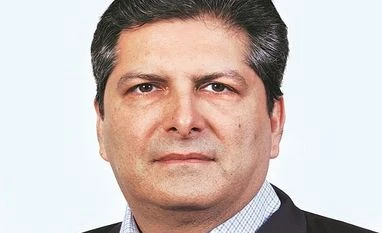The government could be looking at giving tax exemptions to buyers of stressed assets because they may otherwise ask for more haircuts on assets. This, in turn, will erode banks’ capital base, leading to pressure on the government to re-infuse funds, Bahram Navroj Vakil, founding partner of law firm AZB & Partners, told Advait Rao Palepu. Edited excerpts from the conversation:
How do you think the Insolvency and Bankruptcy (Resolution) Code (IBC) process has fared so far?
Overall I am very pleased with it in the first year of its operation. Regarding judgments, I think largely everyone has got it right; they have followed the goals that we are trying to achieve. Having said that, the Big 12 accounts, which are massive and very complex, will be more crucial. Further, until now information utilities were not in place, but now the first one is up and running. Everything is moving well, but for now we need to see if there is any money. Is there enough of an appetite for these assets? What would be the haircut? For all these cases, what the outcome would be the year 2018 will determine.
What is your view on the Union government’s continuous amendments to the IBC at the end of 2017?
Even the law in the United States has gone through over 300 amendments, and in this one year there has been a lot of learning. For example, there was an issue regarding getting shareholder approval. Similarly, there are many questions regarding taxes, the Competition Commission, the Securities and Exchange Board of India, past liabilities, contingent liabilities, the sector-specific licences and permits, etc. So given all these, they are trying to make the law even more efficient to achieve goals.
Will there be sector-specific amendments?
I don’t think it will be sector-specific. Accordingly, whichever regulator, whether it is the Telecom Regulatory Authority of India (Trai) or the Competition Commission of India (CCI), there will be an “accelerated approval process”. So if the National Company Law Tribunal (NCLT) says that “in 30 days, you need to pay the operational creditors”, within those 30 days all the approvals (from the requisite regulators, Trai or CCI) need to be sought. Either you get all the approvals in time, or in some cases there may be exemptions.
How should the tax authorities treat the acquisition of stressed assets?
Some reports say the government is looking at giving some exemptions. The bigger the haircut for the bank, the more the government would have to infuse capital. So either you take it as tax revenue or bank capitalisation. They seem to be looking at tax exemptions positively.
How has the IBC affected the regular business of banks?
There are two big changes that have come about. The first one is in terms of fairness: There was always a fear of giving particular companies a very large haircut. Now whether we like it or not, the Central Vigilance Commission or the Comptroller and Auditor General of India are a reality. And two to three years down the road, once you are retired, questions can arise as to why certain decisions were made. So the big change is that the IBC gives us a very solid system with many safeguards, and there is no question of favouritism.
Secondly, the most important aspect the IBC has brought in is that you get the NCLT’s stamp of approval: That you have followed the law of the land, and that you have followed the procedure. So a change that has occurred is that, I think, the fear to make the correct calls will disappear.
Lastly, how did our almost 10 per cent non-performing asset (NPA) pile-up happen? Of course, there are several causes creating years and years of bad debt piling up and the ‘extend and pretend’ regime flourished.
How do you look at the balance of power shifting heavily towards the committee of creditors (CoC)?
The architecture of the law was that the CoC is best placed to decide on maximising the value of assets as quickly as possible. The first goal (of the resolution process) is to keep the company as a “going concern”, and maximise asset values. In the United States, courts have a very big role and “debtors are in possession”. For us, it was decided that it would be preferable to have “creditor in possession”, based on the UK model, and the banks, rather than the courts, would be the best decision makers.
What are your thoughts on the Union government’s Ordinance barring wilful defaulters, and other categories of “defaulting parties”?
I think this is the prerogative of the government and the legislature. They felt that the moral hazard issue is too important an issue to let go. This is a decision the government took, keeping in mind societal issues and taking a holistic view.
Unlock 30+ premium stories daily hand-picked by our editors, across devices on browser and app.
Pick your 5 favourite companies, get a daily email with all news updates on them.
Full access to our intuitive epaper - clip, save, share articles from any device; newspaper archives from 2006.
Preferential invites to Business Standard events.
Curated newsletters on markets, personal finance, policy & politics, start-ups, technology, and more.
)